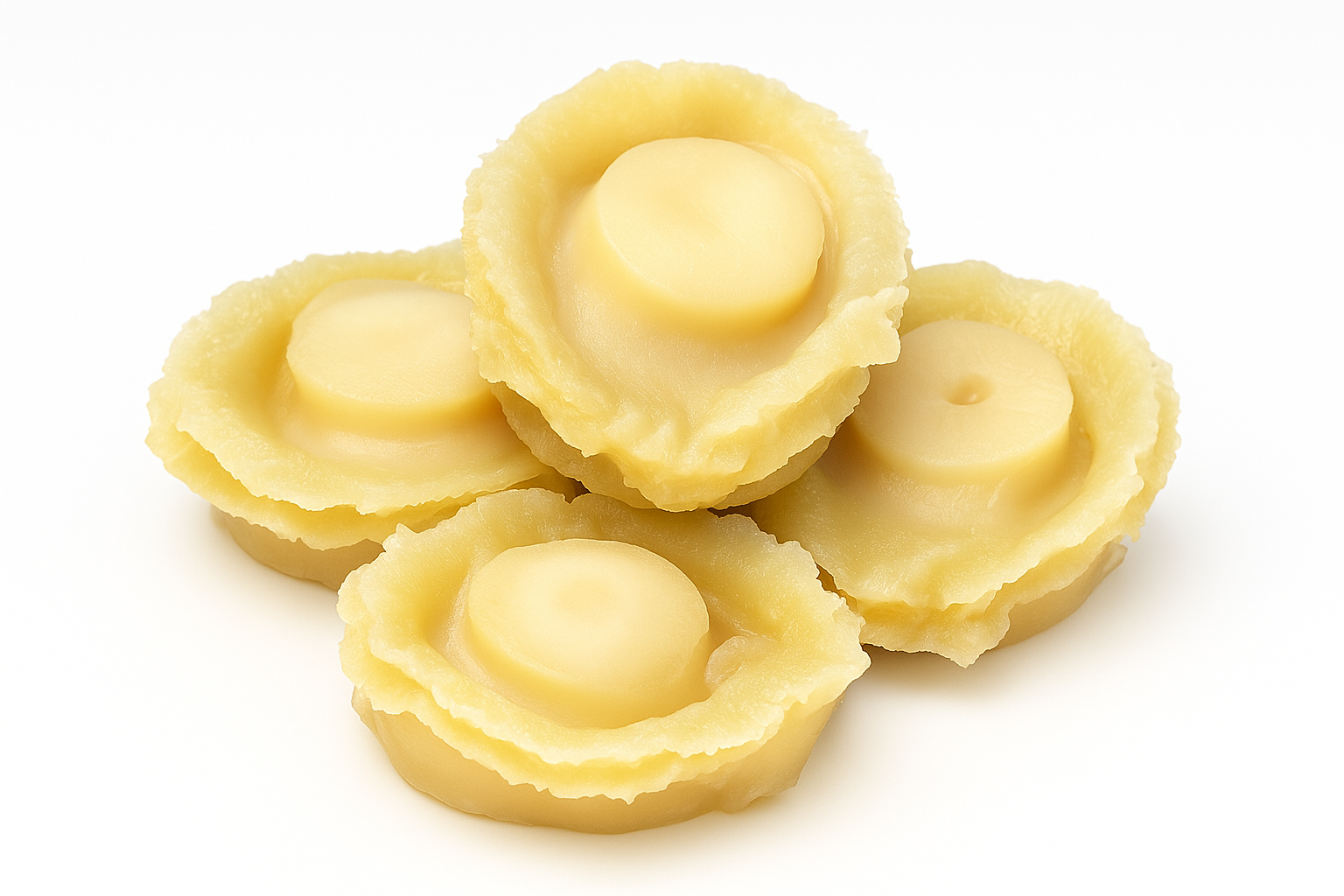As the global food industry continues to embrace sustainability and innovation, the rise of plant-based seafood is setting new benchmarks for taste, texture, and functionality. Among the most exciting of these developments is plant-based abalone, a sophisticated seafood alternative designed to capture the delicate firmness and luxurious mouthfeel of traditional abalone, while staying true to the principles of plant-based formulation.
At the heart of this innovation lies carrageenan, a naturally derived hydrocolloid from red seaweed known for its remarkable gelling, stabilizing, and water-binding properties. When used in plant-based seafood systems, carrageenan delivers the structural integrity and springy bite consumers expect from premium shellfish, bridging the gap between authentic texture and sustainable design.
Through precise formulation, carrageenan enables manufacturers to fine-tune the gel strength, elasticity, and cohesiveness of plant-based abalone, ensuring consistent performance during production and cooking. Whether grilled, braised, or served in sauces, the product retains its shape and succulence, offering a sensory experience comparable to its ocean-sourced counterpart.
Beyond texture enhancement, carrageenan also contributes to moisture retention, freeze-thaw stability, and uniform appearance, supporting both shelf-life extension and clean-label positioning. Its compatibility with a wide range of plant proteins and natural flavor systems makes it an ideal choice for producers seeking to innovate without compromising on quality or consumer appeal.
More than a functional ingredient, carrageenan serves as a foundation for next-generation seafood alternatives, one that aligns performance with purpose. With its ability to replicate the indulgence of abalone while reducing environmental impact, carrageenan demonstrates how science and sustainability can come together to create meaningful change on the plate.
Plant-based abalone made with carrageenan represents more than an alternative, it’s a reflection of the future of food: sustainable, sensory, and smartly formulated.
The global carrageenan market continues to expand as demand for natural and plant based food ingredients rises. According to Grand View Research, the market was valued at USD 872 million in 2022 and is projected to reach USD 1.32 billion by 2030, growing at a CAGR of 5.4%. This steady growth is fueled by the shift toward clean label and sustainable formulations, with carrageenan standing out as a seaweed derived hydrocolloid that delivers both functionality and a natural origin.
Within this trend, plant based applications have become one of the fastest growing uses of carrageenan. Its gelling and stabilizing properties make it essential in replicating the texture and mouthfeel of meat, dairy, and seafood alternatives—key to achieving consumer acceptance in these evolving categories.
The broader plant based food market is on track to exceed USD 100 billion by 2033, growing at a CAGR of 8.3%, according to Precedence Research. Meanwhile, the plant based seafood segment, a smaller but rapidly emerging category, valued at USD 105 million in 2024, is projected to reach USD 990 million by 2033, expanding at a CAGR of over 28%, based on IMARC Group data.
As manufacturers innovate to match the sensory experience of traditional foods, carrageenan’s seaweed derived composition provides a competitive edge—enhancing texture, bite, and stability while aligning with sustainability and clean label trends. From plant based meats to seafood alternatives like vegan abalone, carrageenan remains a key ingredient bridging functionality with the promise of ocean derived, plant powered innovation.
For this plant-based abalone application, we recommend using RICOGEL 84894, a specialized carrageenan-based functional ingredient engineered to deliver the ideal texture, structure, and bite that closely replicates traditional abalone.
As a binder, stabilizer, and texturizer, RICOGEL 84894 provides excellent gelling strength and water-binding capacity, ensuring the product retains its firmness, elasticity, and juiciness through various processing and cooking conditions. It helps achieve a cohesive and resilient texture that withstands slicing, simmering, and canning, key attributes for premium plant-based seafood products.
With its superior functionality, RICOGEL 84894 empowers manufacturers to produce high-quality, sustainable plant-based abalone that combines indulgence, texture precision, and processing efficiency, meeting the expectations of both consumers and industry professionals.
Points to consider:
- The recommended dosage is 1.0% – 2.0% of the total weight.
- RICOGEL 84894 is non-GMO (Genetically modified Organism).
- RICOGEL 84894 provides exceptional binding, stabilization, and texturization, delivering the ideal firmness and elasticity essential for premium plant-based abalone formulations.



